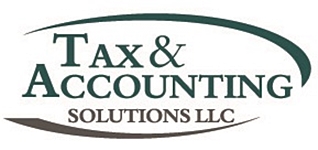The tax consequences of selling a business depend on whether you operate as a sole proprietor or a corporation. As a sole proprietor, selling your business means you are selling the individual assets of the business. The sale of a business is not usually a sale of one asset. Instead, some or all of the… Read More
As a business owner, one of the most important things you should do is keep good records. Without them, the IRS may disallow some of the expenses you incur if it chooses your return for a closer look. Maintaining good records should be done throughout the year. Keeping receipts, credit card statements, bank statements, and… Read More
If you are searching for a new job that is in the same line of work you currently have, you may be able to deduct some job-hunting expenses on your federal income tax return. Expenses are deductible even if you don’t get a new job. Here are some important facts to know about deducting costs… Read More
As the tax year draws to a close, many of you are thinking of ways to reduce your taxable income. Generally, this is accomplished by increasing your expenses for the year. For example, making a charitable contribution by check on December 31, 2017, will create a deduction on your 2017 tax return if you are… Read More
When non-employees perform work for you in your trade or business, it’s important to obtain a Form W-9, Request for Taxpayer Identification Number (TIN) and Certification, before paying them. Taxpayers use a Form W-9 to provide their correct TIN to the person who is required to file an information return with the IRS to report… Read More
Like retirement plans, there are additional education and healthcare related plans that may help you lower your taxable income. 529 Education Savings Plans 529 plans are operated by a state or educational institution and offer tax advantages and potential incentives. These plans make it easier to save for college for a designated beneficiary, such as… Read More
Investing the maximum allowable contribution per year to a retirement account is a great way to reduce your taxable income. Below, are several types of accounts that are available to taxpayers. Traditional 401(k) Plans 401(k) plans are a common way for businesses to help employees save for retirement. Traditional 401(k) contributions are not considered taxable… Read More
Do you throw a holiday party, summer outing or a similar type of event for your employees? The expense of providing recreational, social or similar activities (including the use of a facility) for your employees is deductible and isn’t subject to the 50% limit. However, the benefit must be primarily for employees who aren’t highly… Read More
If you have a home office or a space in your home dedicated to conducting business, you may qualify for a home office deduction. However, there are some requirements that must be met: The business part of your home must be used regularly and exclusively for business purposes. This space must be your principal place… Read More
The IRS initiates most contacts through regular mail delivered by the United States Postal Service. However, there are special circumstances in which the IRS will call or come to a home or business, such as when a taxpayer has an overdue tax bill, to secure a delinquent tax return or a delinquent employment tax payment,… Read More

